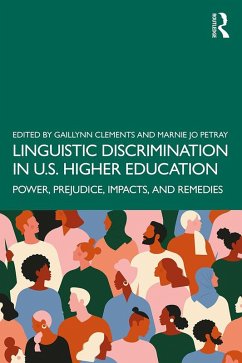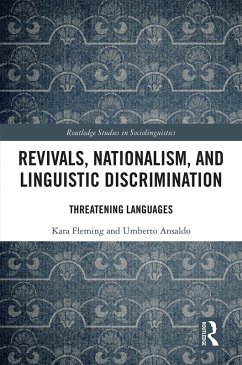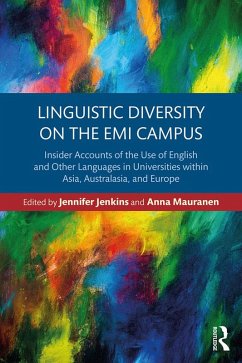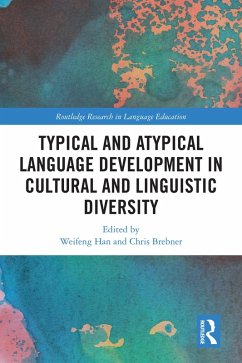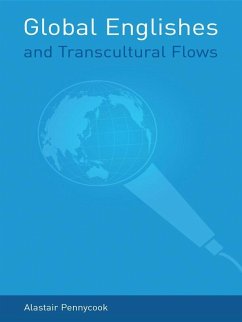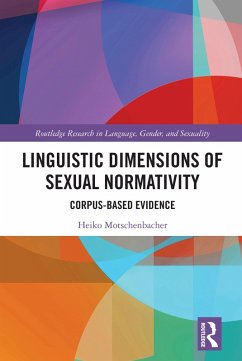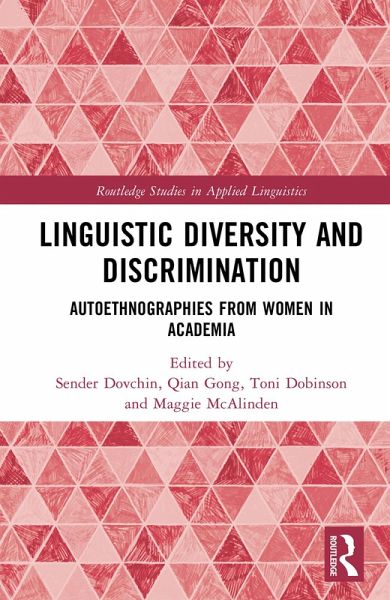
Linguistic Diversity and Discrimination (eBook, PDF)
Autoethnographies from Women in Academia
Redaktion: Dovchin, Sender; McAlinden, Maggie; Dobinson, Toni; Gong, Qian
Versandkostenfrei!
Sofort per Download lieferbar
42,95 €
inkl. MwSt.
Weitere Ausgaben:

PAYBACK Punkte
21 °P sammeln!
This collection explores the ways in which women in academia from culturally and linguistically diverse backgrounds mediate the negotiation of linguistic discrimination and linguistic diversity in higher education, using autoethnography to make visible their lived experiences.The volume shows how women in academia from CaLD backgrounds, particularly those living or working in the Global South, draw on their multivalent complex linguistic backgrounds and cultural repertoires to cope with, and manage, linguistic and systemic gender discrimination. In adopting authoethnography as its key methodol...
This collection explores the ways in which women in academia from culturally and linguistically diverse backgrounds mediate the negotiation of linguistic discrimination and linguistic diversity in higher education, using autoethnography to make visible their lived experiences.
The volume shows how women in academia from CaLD backgrounds, particularly those living or working in the Global South, draw on their multivalent complex linguistic backgrounds and cultural repertoires to cope with, and manage, linguistic and systemic gender discrimination. In adopting authoethnography as its key methodology, the book encourages these academics to 'write themselves' beyond the conventions from which women in academia have traditionally been forced to speak and write. The collection features perspectives from women across geographic contexts, sub-fields and levels of experience whose stories are not often told, putting at the fore their narratives, lived experiences and career trajectories in mediating issues around power, ideology, language policy, social justice, teaching and learning, and identity construction. In so doing, the book challenges the wider field to expand the borders of discussions on linguistic discrimination and higher education institutions to critically engage with these issues.
This book will be of interest to scholars in applied linguistics, sociolinguistics and cultural studies.
The volume shows how women in academia from CaLD backgrounds, particularly those living or working in the Global South, draw on their multivalent complex linguistic backgrounds and cultural repertoires to cope with, and manage, linguistic and systemic gender discrimination. In adopting authoethnography as its key methodology, the book encourages these academics to 'write themselves' beyond the conventions from which women in academia have traditionally been forced to speak and write. The collection features perspectives from women across geographic contexts, sub-fields and levels of experience whose stories are not often told, putting at the fore their narratives, lived experiences and career trajectories in mediating issues around power, ideology, language policy, social justice, teaching and learning, and identity construction. In so doing, the book challenges the wider field to expand the borders of discussions on linguistic discrimination and higher education institutions to critically engage with these issues.
This book will be of interest to scholars in applied linguistics, sociolinguistics and cultural studies.
Dieser Download kann aus rechtlichen Gründen nur mit Rechnungsadresse in A, B, BG, CY, CZ, D, DK, EW, E, FIN, F, GR, HR, H, IRL, I, LT, L, LR, M, NL, PL, P, R, S, SLO, SK ausgeliefert werden.




